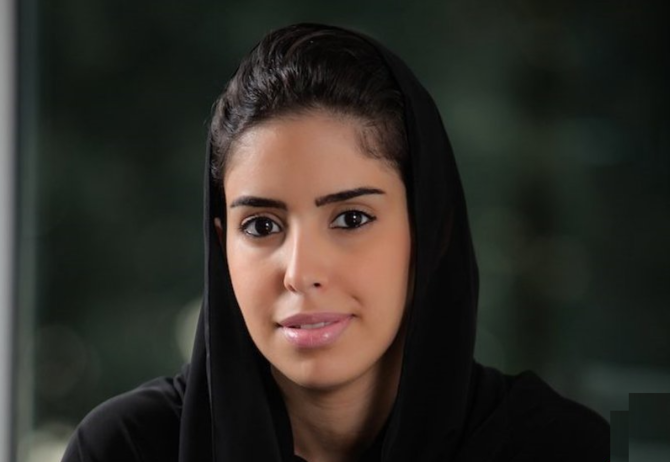
- ARAB NEWS
- 20 Apr 2024

As has often been said, if you do not like the story, tell a better one.
Some readers outside our region are used to a media narrative that portrays women from Middle Eastern countries as oppressed. It is a narrative that I, as director of strategic communications at the UAE’s Ministry of Foreign Affairs and International Cooperation, am determined to help change.
We need to do this more often on the global stage by highlighting our achievements as a country and identifying partners who can help us accelerate progress in the field of women’s rights.
Today, on International Women’s Day, we are afforded the opportunity to reflect on how far we have come as a nation and, in the words of the UN, “celebrate acts of courage and determination by ordinary women who have played an extraordinary role in the history of their countries and communities.”
To this, I would add the celebration of extraordinary women, and indeed of all those who have encouraged and empowered women to achievements that have made the world a better, fairer, and safer place.
Without a doubt, the UAE is a world leader in gender equality and female empowerment. As a professional Emirati woman, many of my achievements have been made possible because of my government’s recognition of the pivotal role women play in the economic, political, and social success of the UAE.
The UAE is a world leader in gender equality and female empowerment. As a professional Emirati woman, many of my achievements have been made possible because of my government’s recognition of the pivotal role women play.
Hend Al-Otaiba
Since the country’s founding in 1971, Emirati women have been recognized as equal partners in the UAE’s rapid development. In the public sector, 50 percent of our Federal National Council is female, as is a third of our Cabinet — a higher proportion than either the US or Britain. We have a Gender Balance Council, tasked with increasing the role of women across all positions in the UAE government.
Today, 23,000 Emirati businesswomen run projects worth more than Dh50 billion ($13.6 billion), and the UAE is on par with the US, where the proportion of women serving on the boards of chambers of commerce and industry is 19 percent.
In the UAE, women occupy 66 percent of public sector jobs — one of the highest proportions worldwide — including 30 percent of senior leadership positions associated with decision-making roles. Women occupy 75 percent of such positions in the education and health sectors.
In the Ministry of Foreign Affairs and International Cooperation, where I work, I am pleased to say that we are near the top of the international leaderboard in the empowerment of women within the diplomatic service. As of October 2019, 49.5 percent of the ministry’s employees were women, and nearly a third of our diplomats were female. This includes ambassadors in major embassies such as the UN Mission in New York, the Netherlands, Finland, Denmark, and Germany.
Nearly two-thirds of university graduates are women (including, crucially for our continued development, 77 percent of computer science students and 44 percent of engineering students — more than double the rates of those in Western Europe or the US).
We are seeing the payoffs of this investment through ventures such as the Hope Mars Mission, the UAE’s space probe that is set to launch in July. It fills me with pride that a third of the mission’s team members are women in a sector traditionally dominated by men. Among the mission’s science team, that proportion rises to 80 percent.
Our nation’s founding father, Sheikh Zayed bin Sultan Al-Nahyan, recognized the importance of gender equality decades before it became accepted wisdom around the world. “The woman is half of the society; any country which pursues development should not leave her in poverty or illiteracy,” Sheikh Zayed said.
Those words were uttered in a country that had little in the way of riches or development at the time. Yet, today, I wake up in one of the most prosperous, educated and peaceful nations on Earth — a country that not only celebrates International Women’s Day but has its own day to mark the progress of women: Emirati Women’s Day, on Aug. 28.
As we look to the future, we seek to further champion the successful partnerships that have enabled the UAE to make so much progress in empowering women in so few years as a country. It is worth highlighting, for example, the UAE’s support for the UN’s role in promoting women’s empowerment, both regionally and globally. At the UN General Assembly in New York last year, the UAE announced a contribution of $15 million over the next three years to support UN Women.
We could also highlight the fact it is now government policy that, by 2021, all of the UAE’s foreign assistance will integrate gender equality and women’s empowerment as key components.
There is no doubt that 2020 is a pivotal year for women’s empowerment worldwide. While I am proud to live in a country that values the limitless potential of women, I can’t wait to see what we can achieve with continued progress toward true gender equality.
Hend Al-Otaiba is Director of Strategic Communications at the UAE Ministry of Foreign Affairs and International Cooperation.